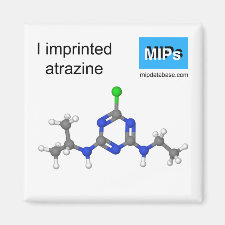
Authors: Turiel E, Tadeo JL, Martin-Esteban A
Article Title: Molecularly Imprinted Polymeric Fibers for Solid-Phase Microextraction.
Publication date: 2007
Journal: Analytical Chemistry
Volume: 79
Issue: (8)
Page numbers: 3099-3104.
DOI: 10.1021/ac062387f
Abstract: Abstract: Solid-phase microextraction (SPME) is widely used in analytical laboratories for the analysis of organic compounds, thanks to its simplicity and versatility. However, the current commercially available fibers are based on nonselective sorbents, making difficult in some cases the final determination of target compounds by chromatographic techniques. Molecularly imprinted polymers (MIPs) are stable polymers with selective molecular recognition abilities, provided by the template used during their synthesis. In the present work, a simple polymerization strategy allowing the obtainment of molecularly imprinted polymeric fibers to be used in SPME is proposed. Such a strategy is based on the direct synthesis of molecularly imprinted polymeric fibers (monoliths) using silica capillaries as molds, with silica being etched away after polymerization. The system propazine:methacrylic acid was used as a model for the preparation of molecularly imprinted fibers, and its ability to selectively rebind triazines was evaluated. Variables affecting polymer morphology (i.e., polymerization time, fiber thickness) and binding-elution of target analytes (i.e., solvents, time, temperature) were studied in detail. The imprinted fiber showing the best performance in terms of selectivity and affinity for triazines was successfully applied to the extraction of target analytes from environmental and food samples
Template and target information: propazine, PPZ, desethylatrazine, DEA, desisopropylatrazine, DIA, simazine, SIM, cyanazine, CYA, atrazine, ATR, terbutylazine, TER



Join the Society for Molecular Imprinting

New items RSS feed
Sign-up for e-mail updates:
Choose between receiving an occasional newsletter or more frequent e-mail alerts.
Click here to go to the sign-up page.
Is your name elemental or peptidic? Enter your name and find out by clicking either of the buttons below!
Other products you may like:
 MIPdatabase
MIPdatabase









